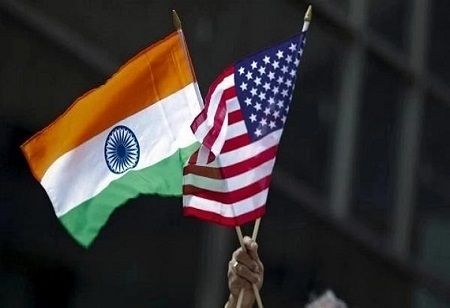
India and US Deepen Collaboration on Semiconductors and Critical Minerals

 India and the United States have agreed to bolster their cooperation in semiconductors, supply chains, and critical minerals, marking a significant advancement in their bilateral relations. This agreement was solidified during the meeting of the India-US initiative on Critical and Emerging Technology (iCET), led by Indian National Security Adviser Ajit Doval and US National Security Adviser Jake Sullivan in New Delhi.
India and the United States have agreed to bolster their cooperation in semiconductors, supply chains, and critical minerals, marking a significant advancement in their bilateral relations. This agreement was solidified during the meeting of the India-US initiative on Critical and Emerging Technology (iCET), led by Indian National Security Adviser Ajit Doval and US National Security Adviser Jake Sullivan in New Delhi.
The launch of a new strategic semiconductor partnership between General Atomics and 3rdiTech was a key outcome of the meeting. This partnership aims to co-develop semiconductor design and manufacturing processes for precision-guided ammunition and other national security-focused electronics platforms. The collaboration reflects the growing importance of semiconductors in global geopolitical dynamics, with the US, Japan, and China heavily investing in developing domestic capabilities.
As part of this initiative, a joint Semiconductor Readiness Assessment was conducted through a partnership between the US Semiconductor Industry Association and the India Electronics Semiconductor Association. This assessment identifies immediate opportunities and facilitates the long-term strategic development of complementary semiconductor ecosystems in both countries, enhancing India’s role in the global semiconductor supply chain.
In alignment with these developments, India has recently approved three major semiconductor plant proposals, signaling a major step towards becoming a global semiconductor manufacturing hub. The projects represent an estimated investment of Rs 1.26 lakh crore. Tata Electronics, in collaboration with Taiwan’s Powerchip Semiconductor Manufacturing Corp. (PSMC), will establish India’s first semiconductor fabrication plant in Dholera, Gujarat. Additionally, Tata Semiconductor Assembly and Test Pvt Ltd (TSAT) will set up a semiconductor unit in Morigaon, Assam, while CG Power, in partnership with Renesas Electronics Corp. from Japan and Stars Microelectronics from Thailand, will establish another semiconductor unit in Sanand, Gujarat. These initiatives are expected to significantly boost India’s electronics manufacturing capabilities and align with the country's aspirations of becoming a semiconductor powerhouse.
In addition to semiconductors, the two countries have committed to enhancing their partnership on critical minerals, which are essential for clean energy technologies and various key industries. A notable aspect of this collaboration is the promotion of India’s involvement in the Mineral Security Partnership. This includes co-investing in a lithium resource project in South America and a rare earths deposit in Africa, aimed at diversifying critical mineral supply chains responsibly and sustainably.
The fact sheet released after the iCET meeting underscores plans to establish an India-US Advanced Materials R&D Forum as part of the India-U.S. Joint Committee Meeting on Science and Technology. This forum will facilitate expanded collaboration between American and Indian universities, national laboratories, and private sector researchers on advanced materials and critical minerals.
The two nations also agreed to enhance industrial and commercial coordination for critical mineral supply chains under the India-US Commercial Dialogue. This dialogue, involving the US Department of Commerce and the Indian Ministry of Commerce and Industry, will integrate private sector input from the India-US CEO Forum. A bilateral Critical Minerals Memorandum of Understanding is anticipated to be concluded swiftly, focusing on cooperation in critical mineral supply chains for materials such as graphite, gallium, and germanium.
Further opportunities for collaboration in the critical minerals sector include bilateral initiatives in technologies for Neodymium-iron-boron metal, alloy, and magnet making, as well as collaboration with US Department of Energy entities. The two countries will also advance Indian collaboration with US organizations and companies to conduct research studies for the beneficiation of critical minerals, including lithium, titanium, gallium, and vanadium.
In addition, India and the US plan to develop a collaborative program between the Geological Survey of India and the US Geological Survey. This program will focus on the exploration, characterization, and evaluation of rare earth elements and critical mineral deposits, contributing to both nations' knowledge and resource management capabilities.